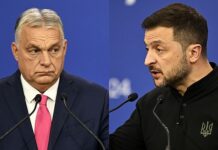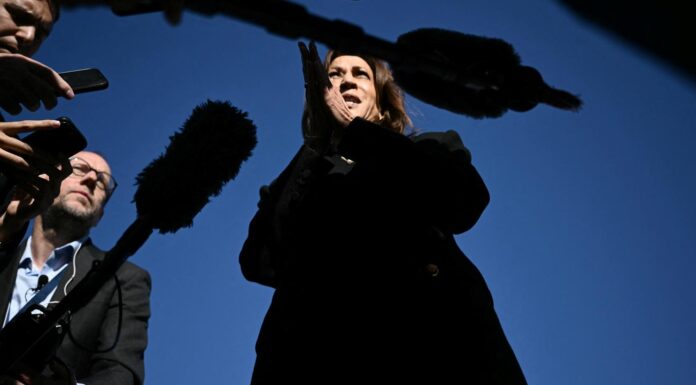The two Commissioners-designate argue that unanimity is slowing down decision-making in the field they are to helm for the next five years.
The use of constructive abstentionism and so-called passerelle clauses should be strengthened for European Union decisions pertaining to foreign affairs and enlargement in order to bypass unanimity rules and make the bloc faster on both fronts, Kallas Kallas and Marta Kos suggested to MEPs on Tuesday.
“The EU’s decision-making in Common Foreign and Security Policy (CFSP) must be faster and more efficient, including through the use of constructive abstention, as well as Qualified Majority Voting where it is foreseen in the Treaty,” Kallas, who has been tapped to replace Josep Borrell at the helm of the EU’s External Action Service, wrote.
The former Estonian prime minister argued in written answers to MEPs’ questions published late evening on Tuesday that the unanimity rule can “slow our determination and ability to respond to urgent major challenges”.
She cited the inability of member states to issue common statements on certain key issues including the Middle East, or to release money for military assistance to Ukraine through the European Peace Facility (EPF) as examples.
“In some cases, unanimity has also been instrumentalised, against the principle of sincere cooperation enshrined in the Treaty,” she added, in a likely reference to Hungary, which has blocked the release of the EPF money for Ukraine military assistance or wielded its veto during talks over sanctions against Russia to score significant carve-outs.
Among the solutions she outlined to allow for a move to qualified majority voting to boost the EU’s efficiency are constructive abstention – used in the early days of Russia’s war of aggression against Ukraine by militarily neutral member states so that other EU nations could deliver lethal weapons to Kyiv – and so-called ‘passerelle clauses’ which are enshrined in the EU founding texts.
These ‘bridge’ clauses allow the European Council to adopt a decision through qualified majority in specific cases on policy that usually requires unanimity.
Kos, the Slovenian candidate chosen to steer the bloc’s policy on enlargement for the coming five years, also backed the use of passerelle clauses in her own written answers to MEPs.
“We must acknowledge that the requirement of unanimity for every step in the process can slow things down if even just one Member State objects,” she wrote.
“I am ready to contribute to the reflection on how procedures and processes could possibly be adjusted and sped up for some of the intermediate steps in the enlargement process,” she added.
Multiple candidate countries are waiting the join the EU, some of which have been waiting for well over a decade, and have had their bid derailed several times by member states blocking progress.
North Macedonia, for instance, went though 17 years of standstill in its accession path as its bid was blocked successively by France, Netherlands, Greece and then Bulgaria.
Both would-be commissioners are likely to face challenges to boost the use of constructive abstention or passerelles clauses.
Hungarian Prime Minister Viktor Orban reiterated during a press conference in the European Parliament earlier this month that he was against the move from unanimity to qualified majority voting. He argued the voice of smaller member states would be stifled in favour of larger ones, like France, Germany, and Italy, which coincidentally, formed a “Group of the Friends of Qualified Majority Voting” last year to speed up decision-making on foreign and security policy decisions.
Qualified majority rule means that at least 16 member states representing 65% of the EU population must join hands for a decision to be approved.
Additionally, passerelle clauses require unanimity to be rolled-out, meaning that all 27 member states would have to agree to ditch their individual veto power on a specific file to create such a clause.
Both are scheduled to appear in front of MEPs next months for confirmation hearings that will decide whether they can join the powerful EU executive.













